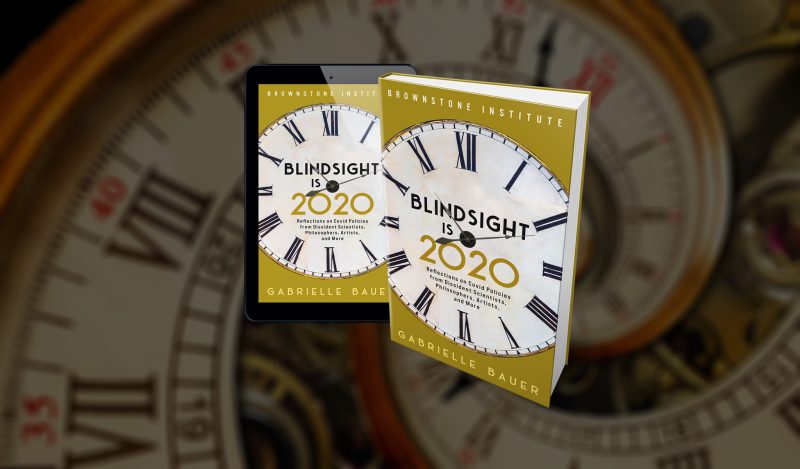Brownstone Institute has recently taken its first step into the world of audiobooks, joining a burgeoning publishing trend that shows no signs of slowing down. Audiobooks deliver the immediacy of the spoken word and don’t have pages to turn or buttons to push—an obvious advantage when hands are occupied at the steering wheel or the weight machine.
Fun facts: in the US, the audiobook industry has seen 11 straight years of double-digit growth, with revenue reaching $1.8 billion in 2022. At this point, most US adults (53 percent, or 140 million people) have listened to at least one audiobook, up from 45 percent in 2022. The highest percentile (57 percent) of audiobook listeners are under 45, with young adults fuelling the biggest growth in the market. This should not come as a surprise: young people rarely buy books—but they love to stream and they value instant experiences.
Even children are getting in on the game. While audiobooks for children account for only 3 percent of the total audiobook pie, the year 2022 saw enormous growth (41 percent) in this demographic. A trickle-down effect may help explain this trend, as 56 percent of audiobook listeners with children report that their kids also listen to books.
A Brief History
While new streaming technology has made audiobooks instantly accessible, the medium dates back to 1932, when The American Institute for the Blind created recordings of books on vinyl records, with each side holding about 15 minutes of speech. The following year, the Library of Congress began producing audiobooks for a more general audience, starting with Shakespeare plays and the American Constitution. Then along came cassette tapes in the 1960s and compact discs in the 1980s, spurring large publishing houses to open up audio divisions.
In subsequent decades, the increasing sophistication of digital technology gave audiobooks a big push: people could now download them to computers or phones rather than buying a clunky cassette or CD. Legend has it that Steve Jobs became hooked on Audible after downloading “Lincoln at Gettysburg.” The industry gained further prominence in 2015, when Jim Dale recorded the Harry Potter series in 200 different voices.
User Experience
The big question: does listening to a book give you as rich an experience as reading it? It depends whom you ask. Some people find that audiobooks help pass the time on road trips, but otherwise prefer the printed word. Audiobook aficionados, on the other hand, maintain they comprehend more with audio than with print—and that the format allows them to read more books. The preference for one or the other format may have to do with your learning style and proclivity for multitasking.
The audiobook experience is poised to change still further with the use of AI-generated narration. Apple has recently launched a series of audiobooks narrated by AI, with two options for fiction (Madison and Jackson) and two for nonfiction (Helena and Mitchell). This raises a slew of new questions: can an AI narrator elicit the same emotion as a real person? Does knowing that a sequence of electronic signals is reading a book change the experience for listeners?
If all this makes you nervous, you can relax: for the time being, Amazon’s Audible platform, the industry leader and Brownstone Institute’s audiobook purveyor of choice, is sticking to real human narrators. We’ve started our audiobook program with our first book of 2023, Blindsight Is 2020, and plan to issue audiobook versions of our other 2023 books (Fear of a Microbial Planet and The Treason of the Experts) and beyond. We hope you enjoy them.
Published under a Creative Commons Attribution 4.0 International License
For reprints, please set the canonical link back to the original Brownstone Institute Article and Author.









